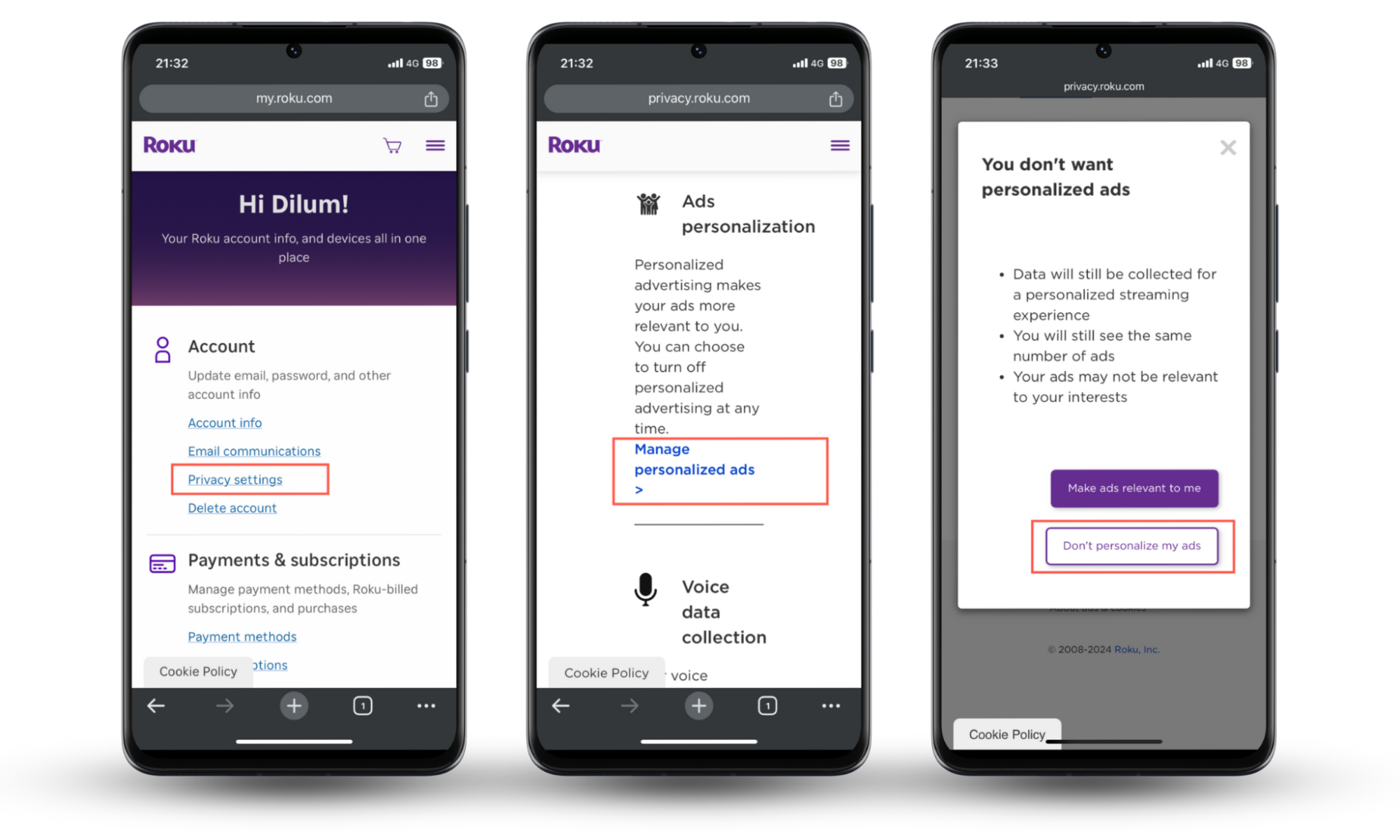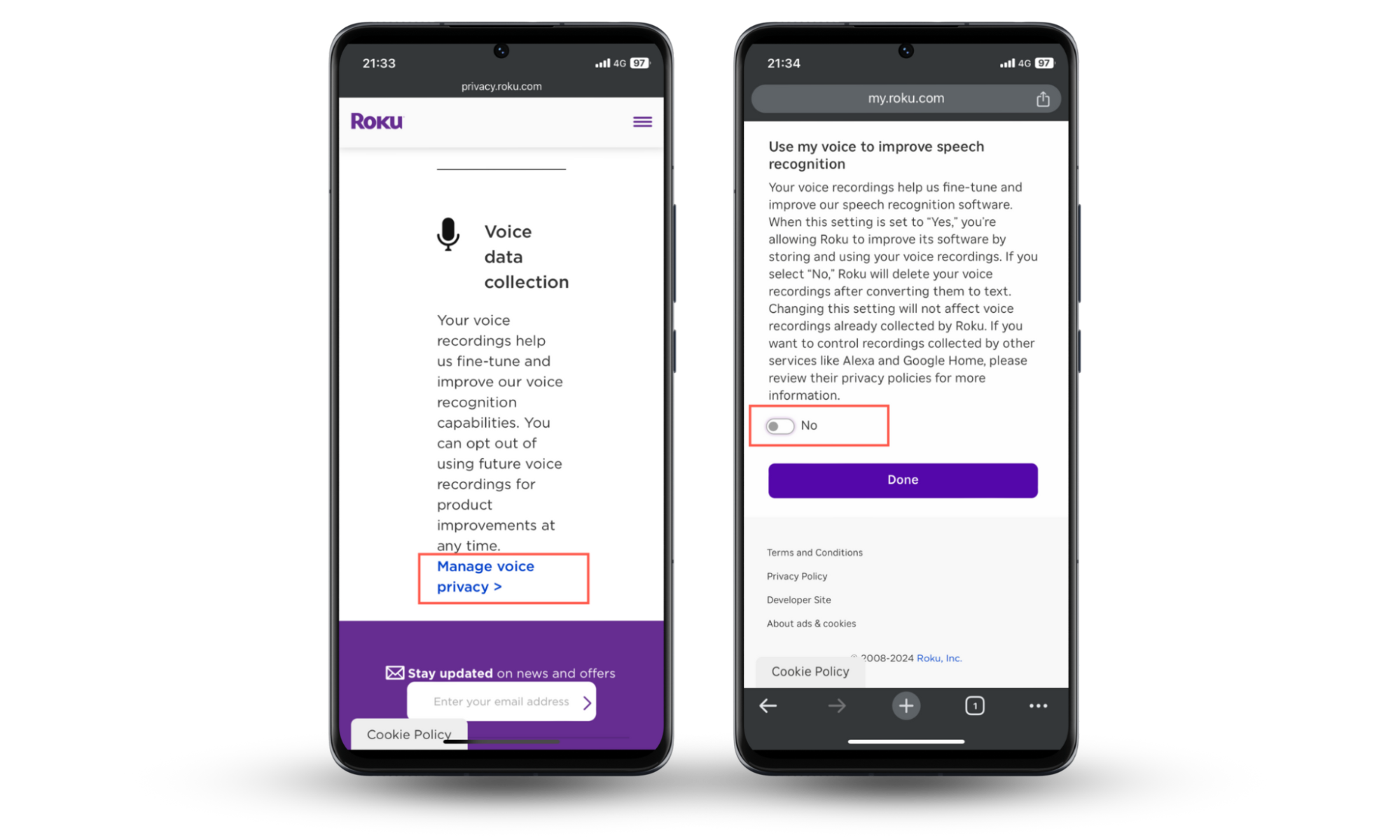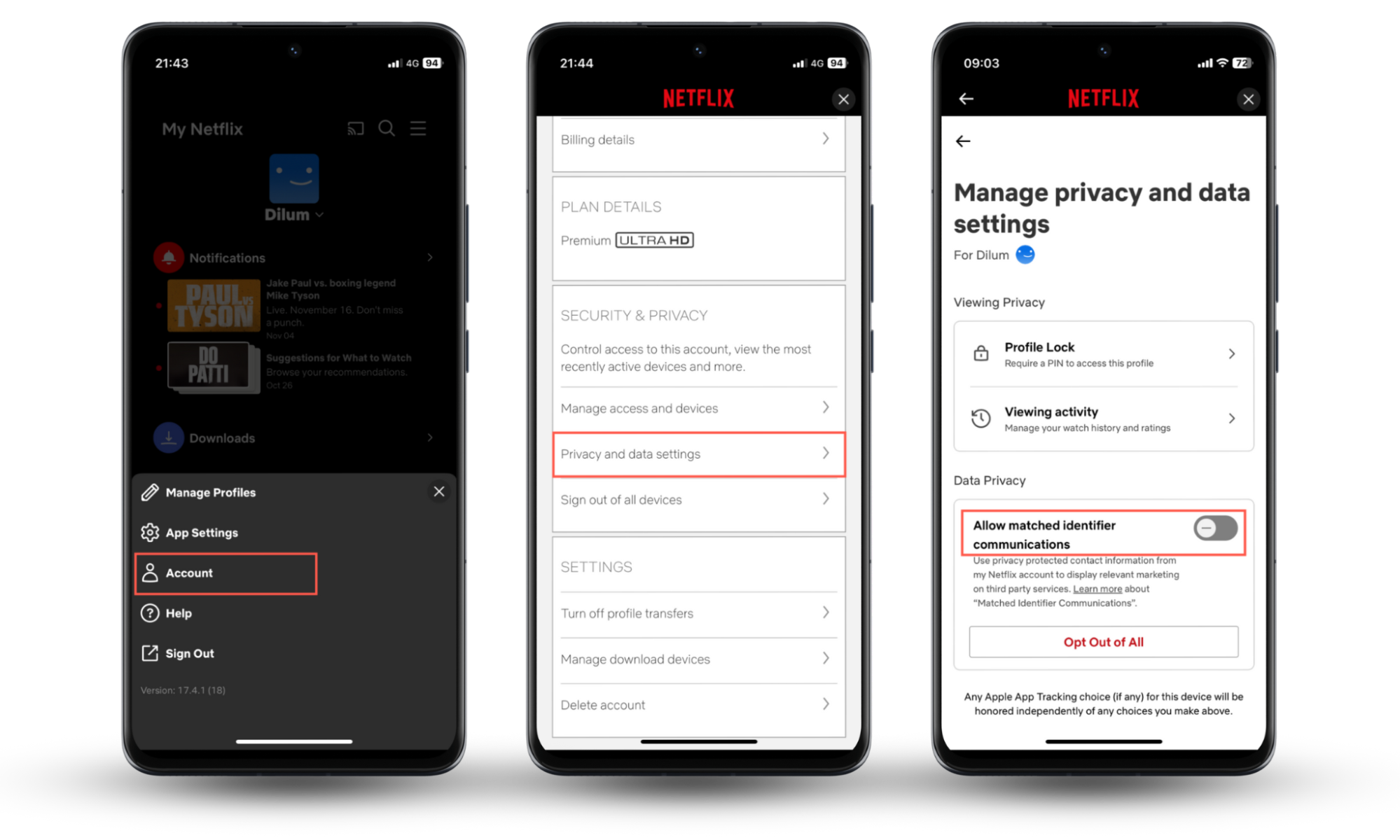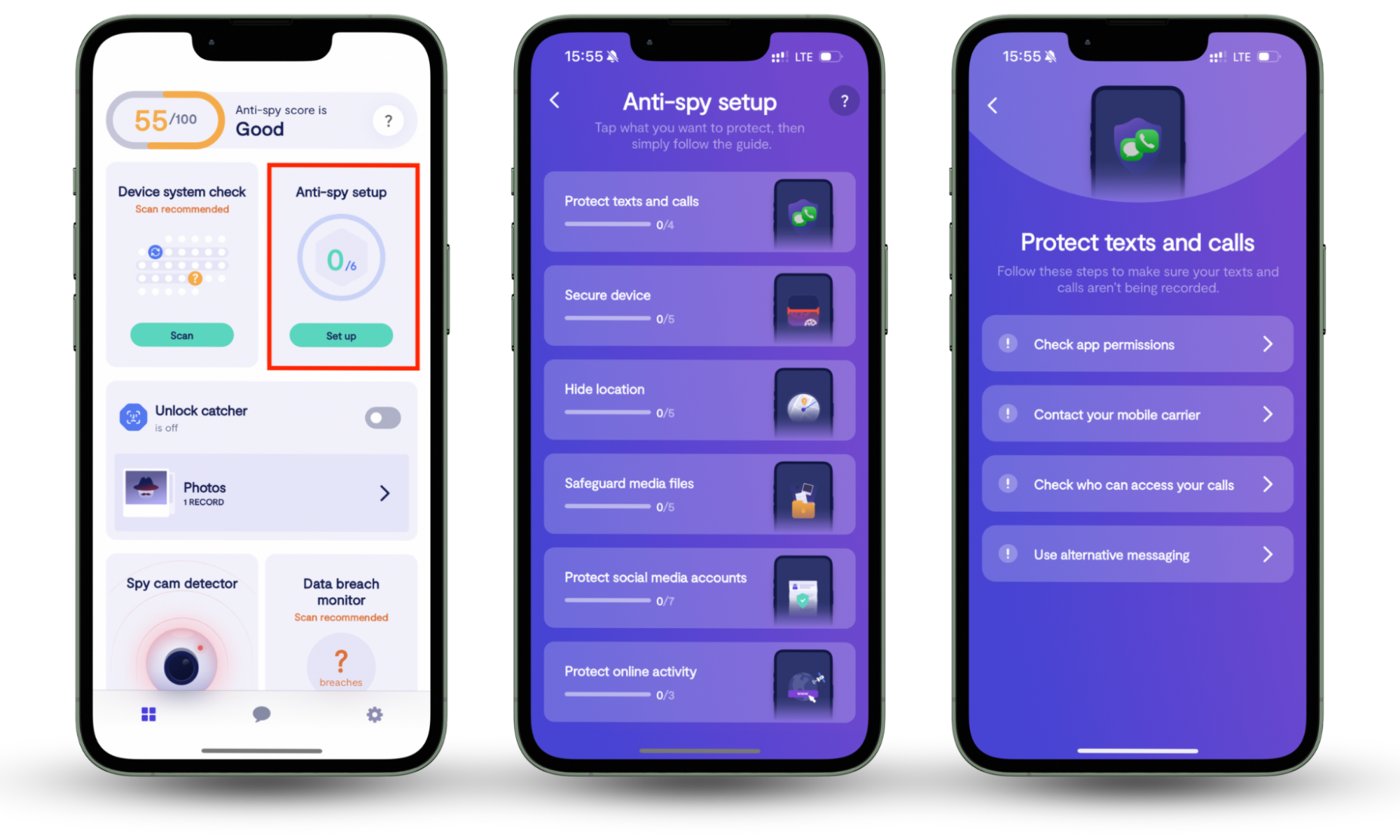Table of contents
- Can Roku spy on you
- Is Roku good for privacy
- Does Roku collect data
- How to stop your Roku from spying
- 1. Disable personalized ads
- 2. Opt out of voice data collection
- 3. Disable Automatic Content Recognition (ACR)
- 4. Check privacy controls on third-party channels
- 5. Check for additional Roku privacy controls
- 6. Enhance the privacy of your phone
- Conclusion
Can Roku spy on you
Yes, Roku can—and will—spy on you. The Roku operating system includes algorithms that monitor your usage patterns, and smart TV technologies like ACR (Automatic Content Recognition) provide Roku with additional data about you. A quick look at Roku's privacy policy is all you need to know how much information the company gathers from its customers.
Is Roku good for privacy
No—Roku is bad for your privacy. While you agree to share your data when setting up your account, the way Roku collects it can feel like borderline spying. The company tracks nearly everything about you—such as your personal information, what you watch, and how you react to content—to build a detailed profile.
This profile then fuels a stream of targeted—and often manipulative—ads and recommendations. Worse yet, Roku shares this information with its business and advertising partners, so you have little control over what happens to your data.
Does Roku collect data
Roku collects data from numerous sources—not just your TV. For instance, it can get information from any third-party accounts it's linked to and may even attempt to combine your data with external sources to create an even more extensive profile.
Roku spies on you to collect the following types of data:
- Personal information: The data that you give Roku when you create an account, such as your name, email, physical address, age, and gender.
- Location data: Roku already has your address but also pinpoints your location based on your IP address.
- Device information: Information about your smart TV ( and phone if you have the Roku app installed).
- Usage data: Roku usage patterns, such as your viewing history, how you interact with content and advertisements, when you watch, and how long you watch.
- Voice data: If you use a voice-enabled remote (or your phone's Roku app as a remote control), Roku will record your voice commands to improve its speech recognition features.
- Media data: Roku gathers metadata about photos, videos, and music files you access via the Roku Media Player.
Roku uses this data to come up with personalized recommendations about TV shows and movies that you'll likely enjoy. However, the main reason is to serve you advertisements tailored to your behaviors and interests.
How to stop your Roku from spying
It's impossible to stop Roku from collecting data about you, but you can take specific measures to reduce the amount of information it gathers. This includes disabling personalized ads, opting out of voice-data collection, and disabling your smart TV's Automatic Content Recognition features.
1. Disable personalized ads
Roku allows you to disable personalized ads. The Roku platform will collect data about you regardless, but the information will not be used to tailor ads. Opting for standard ads also reduces the chances of Roku sharing your data with advertising companies.
To disable personalized ads in Roku:
- Open a web browser and sign into your Roku account.
- Under the Account section, select Privacy settings.
- Select Manage personalized ads.
- Disable the switch next to Personalize ads based on my interests.
- Select Don't personalize my ads.

2. Opt out of voice data collection
Don't like the idea of Roku spying on you through your remote's microphone? It's creepy and invasive, which is why Roku gives you a way to opt out of it.
To disable voice data collection in Roku:
- Sign into your Roku account and go to Privacy Settings > Voice data collection.
- Disable the switch under Use my voice to improve speech recognition.
- Select Done.

3. Disable Automatic Content Recognition (ACR)
Most smart TVs come with built-in technology called ACR that automatically identifies the content you watch. Think of it as similar to Shazam but for TV content. Manufacturers, advertisers, and third-party services (including streaming companies like Roku) use ACR to learn more about your viewing habits, so it's a good idea to turn the feature off.
The process to disable ACR varies by TV manufacturer and model. ACR settings are also not explicitly labeled as ACR. Instead, look for terms like Viewing Information Services, Live Plus, or Smart Interactivity. You might want to check your TV's documentation for specific instructions.
Here are some general steps for popular TV brands:
- LG: Navigate to Settings > All Settings > General > About This TV > User Agreements and disable Personalized Advertising or LivePlus User Agreement.
- Sony: Go to Settings > System Preferences > Samba TV/Interactive TV and select Disable or Off.
- Samsung: Navigate to Settings > Support > Terms & Policy and disable Viewing Information Services or SyncPlus and Marketing.
- Vizio: Go to Settings > System > Reset & Admin and disable viewing data.
- Roku TV: If you own a Roku branded TV, go to Settings > Privacy > Smart TV Experience and disable Use Info from TV Inputs.
Someone can see you through your smart TV if they manage to hack into the device, so make sure to check your TV settings for additional options that you can enable to enhance security. Smart TVs aren't also the only thing that can be hacked—learn more about what can be hacked.
4. Check privacy controls on third-party channels
Who else is tracking you? Third-party channels you access via Roku have their own data collection policies and gather data separately, so check for any controls within these services to safeguard your privacy. For example, if you have a Netflix subscription, you can opt out of data sharing with other services, including Roku.
To stop data sharing on Netflix:
- Open a web browser and log into your Netflix account.
- Select your profile on the top right of the screen and choose Account.
- Scroll down to Security & Privacy and tap Privacy and data settings.
- Disable the switch next to Allow matched identifier communications.

5. Check for additional Roku privacy controls
Roku may offer additional privacy controls based on regional regulations. For instance, users in California have specific rights—such as opting out of having their data sold to third parties—under the California Consumer Privacy Act (CCPA). Make sure to look around your Roku account for additional options.
6. Enhance the privacy of your phone
Did you know that Roku collects data through the Roku companion app for iOS and Android? If that bothers you or you have any other privacy concerns, download Clario Anti Spy and run an Anti-spy setup to shut down the various loopholes that apps exploit to spy on you.
Here's how to run the Anti-spy setup in Clario Anti Spy:
- Install Clario Anti Spy and subscribe to create an account.
- Tap Set up under Anti-spy setup.
- Tap Secure device and work through the onscreen instructions to secure the system software.
- Go through the remaining options in the Anti-spy setup screen—Protect texts and calls, Hide location, Protect online activity, etc.—to further tighten device security.

Clario Anti Spy provides additional features to keep your phone secure. For instance, Device system check detects jailbreak exploits on iOS devices, Data breach monitor alerts you about data breaches, and Unlock catcher records anyone unlocking your phone in the act. Real-time human assistance is also available 24/7.
Conclusion
Roku offers a phenomenal video streaming experience but comes at a cost—your data. While it's impossible to fully opt out of all of Roku's data collection practices, disabling personalized ads, voice data collection, and ACR features can go a long way toward preserving your privacy. If you use the Roku app on your iPhone or Android, don't forget to install Clario Anti Spy to protect yourself from Roku TV spyware.


